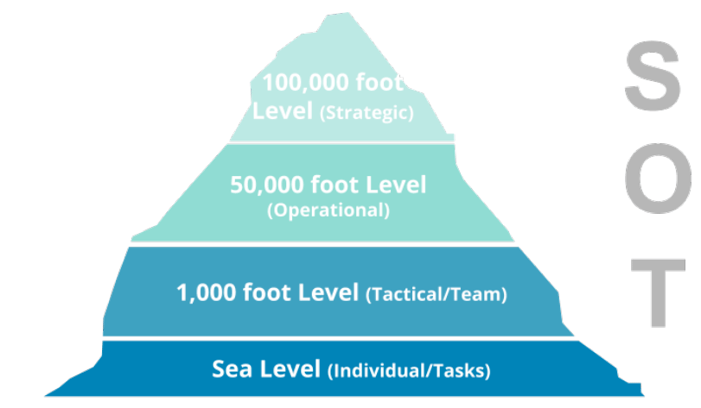Leapfrog Leaders
 Staff
·
1 minute read
Staff
·
1 minute read
"Leapfrog Leaders" written by Drs. Derek Cabrera, Laura Cabrera and Hise Gibson applies existing knowledge about the elements of systems thinking to a widely used decision making framework called SOT. SOT stands for Strategic, Operational, and Tactical - which are are thought to be the three levels of problem solving. More specifically, this paper offers readers insight into the skills needed at each level of decision making; as well as how to develop them through an understanding and application of the basics of systems thinking and leadership.

The 8 skills discussed in the paper are mentioned below:
1. Lowlighting (Content): Avoiding the content-bias that things that look different ARE different;
2. Highlighting (Structure): Seeing the structural patterns and similarities across SOT scale rather than seeing the differences in the content;
3. Mixing: Mixing atomic structures (DSRP) in simple ways to yield more complex molecular structures that act as placeholders for necessary information (i.e., structural predictions);
4. Fractaling (Structure): Seeing the fractal structures are repeating across SOT scale. Realizing that the effective complexity of SOT scales is equal;
5. Throughlining: Seeing the throughline that connects the storyline across SOT scales (e.g, asking: how does x play out at lower/higher scales);
6. Elevationing: Realizing that SOT scale differences are caused by the perspectival transformations of "elevation" (e.g., 100k, 50k, 1k);
7. Grounding: Utilizing an approximating and incremental approach (ST Loop) and getting constant real-world “on the ground” feedback that causes mental model adaptation; and
8. Functional Naming: Name things at the S-level for their POSIWID purpose (functions) so that at the O and T levels a task is contextualized by its purpose (i.e., makes throughlining possible).
All of these skills are based on DSRP Systems Thinking and some on VMCL Systems Leadership. If we think of the DSRP structures (and elements) as “atomic” the list of SOT’ing skills above are “molecular”—that is, they are composites of one or more of the atomic elements. To learn more about these 8 skills, download the paper below.
.png?width=150&height=150&name=CRL%20GOAT%20Logo%20(4).png)



